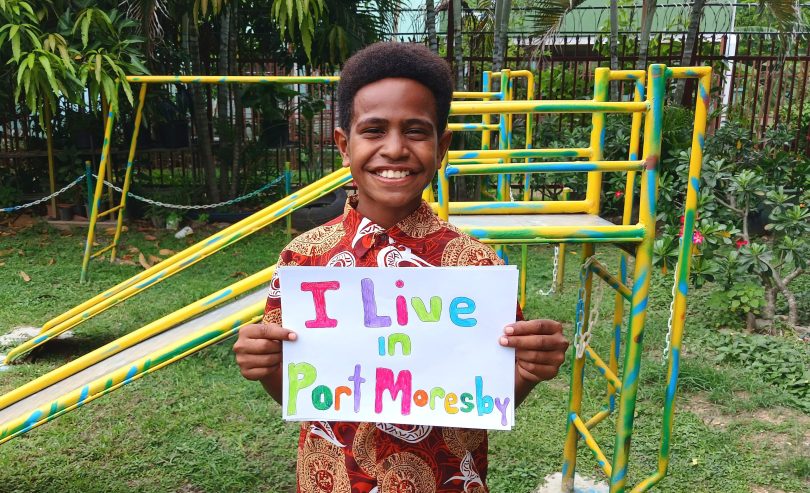Port Moresby, the capital city of Papua New Guinea, is known to many as one of the most dangerous places to live in the country, apart from Lae and Mount Hagen. In late 2023, we undertook research on the safety of Port Moresby, which included suggested initiatives to increase the city’s safety for both Papua New Guineans and expatriates.
A survey of 201 citizens was conducted, with 108 females, 80 males, and 13 participants who didn’t state their gender.
Of the 201 respondents, 137 stated that they felt Port Moresby is unsafe to live and move around in (Figure 1). When moving around the city, some of the precautions that people take every day include continuously looking over their shoulders to see if someone is following them; always having to hide valuable items in their undergarments; avoiding crowded places in the city; travelling home before it’s dark; and making sure to get on a bus with other passengers inside. The 12 men and eight women who said they feel Port Moresby is safe noted that they do take one or two of the precautions listed above when moving around the city.

When asked to list five unsafe places within Port Moresby, a large number of participants (148) mentioned the suburb of Gordons. All locations listed in Figure 2 were deemed unsafe by survey participants owing to their experiences and those of their families and friends, or because they had heard or read stories, or had witnessed other people’s experiences in those places.
In relation to incidents in these areas, the study revealed that 114 participants had experienced bag snatching. Of these, 50 were students, 44 employed, seven unemployed and nine self-employed (four did not indicate their employment status). Most did not report the incidents to the police because they believed that nothing could or would be done to help them retrieve their possessions. Of those who had reported the incident, some were not able to retrieve their items.
One participant stated:
“When the boys snatched my bag at the National Football Stadium, there was a group of police officers there as well at the other end of the stadium. When I ran to one and asked him to help me, he just said, ‘my dear, sorry there’s nothing much we can do to help you get your stuff back’.”
In part because of the lack of repercussions, petty theft continues to be a problem in Port Moresby.
When travelling to these unsafe places, participants stated that the precautions they take included having a male friend or family member accompany them and always taking a cab despite the cost.

How long will PNG’s citizens continue to live in fear in their own country?
A number of participants said that in order for Port Moresby to be safe, there should be an increase in the number of police deployed around the city. They said that more police officers should be stationed in hotspot areas known for petty crimes, such as Gordons, Koki, Erima, Gerehu, and 4 Mile (Figure 2), particularly in the mornings and afternoons at bus stops and marketplaces given that petty crime usually occurs at these times. A stronger police presence would help to ensure people feel safe to move around in the city and importantly prevent petty theft crimes.
In order to achieve this, the government would need to recruit more police officers to the Royal Papua New Guinea Constabulary. At present, PNG’s police to population ratio is one police officer to 1,845 citizens. This is well under the United Nations’ recommended ratio of one police officer to 450 citizens. Recruitment of more police officers would also provide employment opportunities; unemployment is currently of great concern in Port Moresby.
Furthermore, survey participants attached priority to youth employment creation. The government and business houses could work to provide additional employment opportunities for unemployed youth, who are committing the majority of petty crimes as a way of earning an income through the sale of stolen goods.
Finally, a significant proportion of participants favoured the introduction of the Vagrancy Act, which would allow police to remove people from an area and send them back to their villages, as one solution. The National Capital District municipality has plans to introduce such an Act in Port Moresby.

Safety in Port Moresby has been a serious concern for almost a decade, with students and employed people the most targeted groups. With the implementation of some of the measures favoured by survey participants, there is still hope that Port Moresby can become a safe place to live – but we need to start now if we are to make it a safe place for us and future generations.
Disclosure
This research was undertaken with the support of the ANU-UPNG Partnership, an initiative of the PNG-Australia Partnership, funded by the Department of Foreign Affairs and Trade. The views are those of the authors only.


Very informative articles published. I propose this article is useful for any research done so far on alarming rate of petty crime in the Nation’s capital and other centers. This article should be collaborated for policy recommendations on combating crimes in cities and towns because the case is synonymous to other centers of the country.
Thank you Anderson for your comment.
Indeed, safety is a serious concern in Port Moresby currently and needs collective actions from everyone (communities and the government)
Yeah… it’s a serious concern.